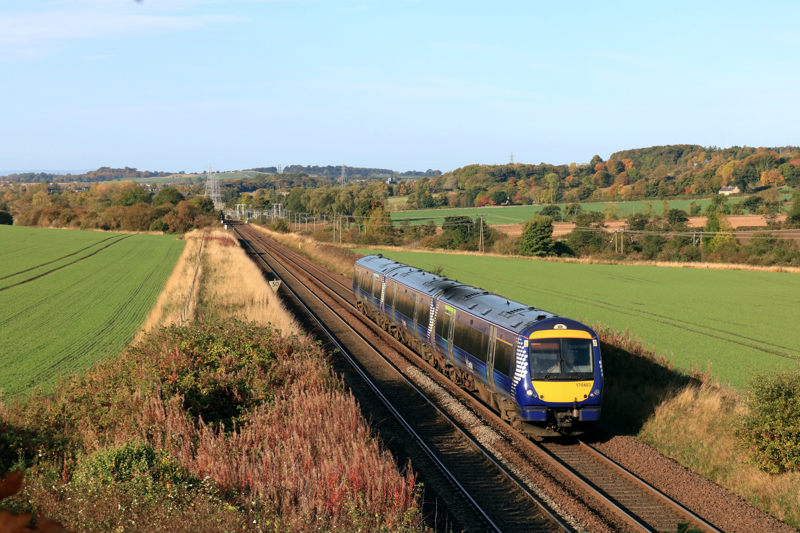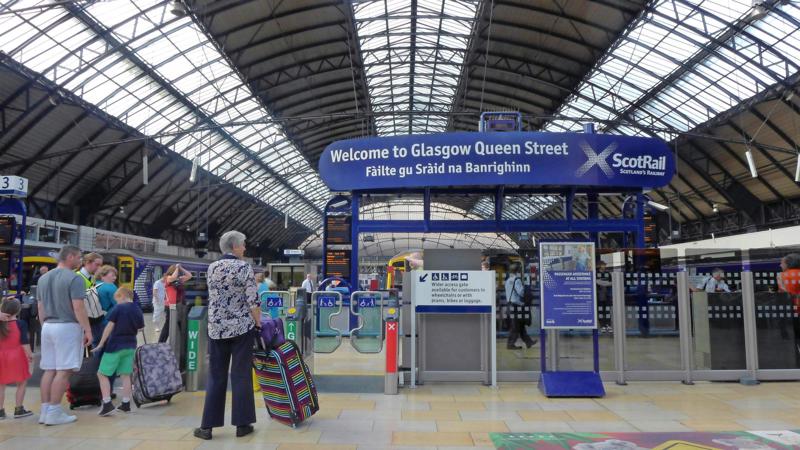
Scottish Labour has pledged to scrap peak fares “for good” if it wins the next election, declaring that the SNP’s pilot scheme “wasn’t really given a fair chance”.

Scottish Labour has pledged to scrap peak fares “for good” if it wins the next election, declaring that the SNP’s pilot scheme “wasn’t really given a fair chance”.
Ahead of the party’s annual conference in Glasgow, leader Anas Sarwar described peak fares as a “workers’ tax”.
ScotRail passengers were able to travel all day with off-peak tickets for a 12-month period from October 2023. But last summer, ministers announced that the trial would not be made permanent because it had not led to sufficient increased demand.
Now Scottish Labour has said scrapping peak fares permanently would be “the right thing for businesses, the right thing for the economy, and… the right thing for the environment”.
At a fringe meeting organised by Strathclyde Partnership for Transport, Scottish Labour’s transport spokesperson Claire Baker said the party’s policy would be the “first step” to a more affordable system of fares.
Asked by RAIL if she believed a permanent change could bring about sufficient modal shift to make the move cost-neutral, she said: “When the [Scottish] government introduced the pilot, it put in £40 million to pay for it. And it said that if demand increased by 10% then it would pay for itself.
“It did achieve a 6%-7% increase, so it wasn’t far off reaching 10% at the time. It was introduced at a time that ScotRail didn’t want to advertise it because it thought that there would be a rush, and it couldn’t cope with an influx of additional passengers.
“It happened during the rail disputes and the reduced timetable, so it wasn’t really given a fair chance. It was also at a time when COVID was ongoing.”

It has been difficult to measure the exact impact of the trial because demand had to be measured against projected post-pandemic recovery in passenger numbers - as opposed to the exact number of passengers recorded during the previous period.
Transport Scotland’s analysis in August 2024 said the “most realistic” modelling suggested that without the trial, demand would have returned to 90% of pre-pandemic levels, which was the case in other parts of Britain. This suggested an increase in demand from the pilot of 6.8%.
Baker said ScotRail had recently told her that “they would anticipate that we’re heading more to a pre-pandemic situation where people are going to be travelling to work more, five days a week”. She said she believed that all-day off-peak fares would encourage greater modal shift if combined with improvements to “reliability and capacity, and other areas that put passengers off” at present.
She also drew attention to differences between peak restrictions on different routes.
“At the moment, peak fares are a bit of a mess, in my view,” she said.
“In the morning, you know you’ve got a peak fare. I represent Fife, and between 1620 and 1810 that’s your peak fare in the evening, which is the most restrictive evening peak fare period that I think is in Scotland, and some places don’t have an evening restriction at all.”
A Scottish government spokesperson said: “Ministers have already stated many times that the peak fares pilot did not increase the shift from car to rail in sufficient numbers. This mirrors the results of Transport for London’s similar trial, which also saw no significant increase in travel as a result of lower fares.
“Scottish ministers have said they would consider further initiatives on peak fares if the settlement from the UK government was increased.
“In the meantime, we are keeping fares increases as low as possible, lower than elsewhere in the UK, while providing a 20% discount on season tickets until September 2025 and permanent extra benefits on flexi-passes.
“Passenger numbers have continued to grow since the end of the peak fares trial.”
Login to continue reading
Or register with RAIL to keep up-to-date with the latest news, insight and opinion.


















Login to comment
Comments
No comments have been made yet.